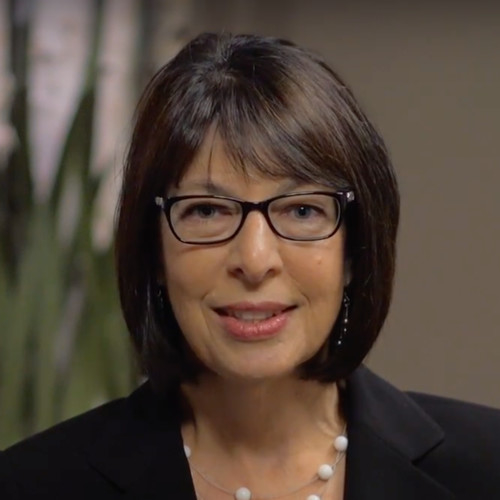
Listen up, we all know how terrifying applying to a job role can be. From submitting your initial application/CV, to the dreaded video interviews and the competitive assessment centres. There’s a different type of challenge to face with every process, but the biggest one of all is shining amongst other applicants.
It’s an unfortunate fact of life that employers filter through a multitude of applications in one go. They’ll hear a lot of the same buzzwords and sift through candidates who may have extremely similar backgrounds and credentials. But they’re looking for that one gem that stands out from the rest.
If you want that person to be you, then here are some top tips from us and the experts over at the international public services company, Serco Group plc.
Tailor until your heart’s content

One shoe size doesn’t fit everyone, and the same thinking applies when it comes to job applications. You need to look carefully at the role you’re applying for and customise the content to perfectly fit the description. For example; if you’re applying for a management grad scheme, do you have evidence of leading a team? Maybe in a university group project, in a society or in a part-time job?
This also includes omitting irrelevant information where needed. Whilst you may want to talk about your two weeks work experience at you dad’s office in secondary school, it’s long in the past and probably just wastes time. Really consider what is most important for that particular job. If you’re in a situation where you’re going to be questioned, prepare by thinking about answers that are most suitable for the role you’re chasing.
Kate Young, Talent Acquisition Manager for Serco, adds: “When describing your work experience, lead with your actual achievements. A list of your roles and responsibilities won’t help a prospective employer understand how you contributed as an individual. Think about exactly what you did and how you did it, the difference you made and the impact it had. What problems did you solve? What improvements did you make? It’s the legacy you left behind that sets you apart from your peers.”
Show off your mad research skills

You’d be surprised how many graduates don’t fully delve more into a company they’re applying for. If you’ve spent the time learning more about the business you’re applying to, demonstrate that in your application. It shows not only that you’re diligent, but that you’ve gone that one step further to learn as much as you can about the role.
Perhaps you’re applying for a role in marketing. Why not mention a particular campaign that they led in your application? Or discuss how their company values align with your own personal goals? If you’re speaking to someone face-to-face, perhaps mention a project that they were publicly involved in. Impress, impress and impress some more!
According to Kate, “If you can’t demonstrate a good understanding of the organisation, your application will go nowhere. Read their website. Find out about their purpose and values and anything else that is of obvious importance and pride to them. Align these to your own experiences and share it. Don’t be shy about showing passion and commitment and standing out from the crowd! For example, can you speak to any of their people or visit any of their sites to get a feel for the culture of the organisation?”
Highlight your USP

We hate to break it to you, but your degree alone may not be enough to shine amongst the crowds of applications. You really need to find what makes you unique in comparison to everyone else. Whether it’s a role in a society or a somewhat relevant quirky skill/hobby that you practise on the side, it’s definitely worth mentioning.
“Recruiters and hiring managers often have hundreds of applications to consider in a short space of time,” Kate explains, “so the more you can do to grab our attention and pique our interest (in a good way!), the better your chances.”
Also think about the transferable skills that this USP gives you. If you were on a sports society, then you could say that this has allowed you to work well in a team and cope under high-pressure situations. Always relate everything back to that job role. And who knows? Your interviewer may find something that they find fascinating, and it may strike up a whole new wave of conversation!
Don’t forget about your experience

Work experience is massively valuable when applying for a job. It demonstrates that you’ve got the ethic for a corporate environment and have been trusted with responsibility in a role. Even if it’s stacking shelves in a supermarket or pouring drinks behind a bar. Any work experience contributes to your overall employability after all!
If you have the chance to get work experience or an internship in a related field to the job you want, don’t hesitate. Skills that are directly related will be extremely valuable to an employer. However, if you’re struggling on the work experience front, try putting more emphasis on your experience in education and extracurricular endeavours.
“Think about your full range of life experiences,” says Kate, “any of which might demonstrate your strengths and aptitude for the job. For example, consider any voluntary or fundraising work, team and individual sport and leisure achievements and even personal projects that you’ve undertaken.”
Never underestimate your presentation

Presentation applies across several different fronts. When it comes to written applications, for example, never skip proof-reading your work. Equally, if you can get creative with your layout, it could potentially work in your favour. Did you know that someone once got a job at GQ by using his design skills to replicate a magazine cover with his application?
If you’re preparing for a video interview, consider how you come across on camera. Speak clearly, look engaged at the screen, dress appropriately and make sure that there’s no background noise/distractions to detract from your performance. For assessment centres, consider how you communicate with both the employer and your fellow applicants. Take a look at our extra nuggets of information on what to expect on the day.
And don’t forget about your social media footprint. Sites like Facebook, Twitter, LinkedIn, and Google+ allow employers to get a glimpse of who you are outside your CV, cover letter or interview. Kate cautions: “Think before you post. Would you be happy for a prospective employer to view your profile? If you choose to share content publicly on social media, make sure it’s always working to your advantage. For example, content that highlights worthy accomplishments in a positive way.”
And finally – perhaps the most important message of all:

“It’s easy to feel intimidated by the prospect of job applications and assessments” says Kate. “Yes, there’s an element of competition. Yes, the employer needs to make a decision. But for us it’s not about ruthlessly filtering out those who might fail, it’s about supporting and selecting those who demonstrate genuine passion and potential to succeed.
“Our own process is about discovering the best in people. What that is exactly can vary from candidate to candidate. It’s not for us to educate our candidates about what good looks like – they should be educating us! It isn’t meant to be easy, but rather than being something to fear, it’s an engaging, enlightening and enjoyable experience for all involved. And if you have questions or you need help, never be afraid to ask – that’s what we’re here for. We believe that everybody should have an equal opportunity to prove themselves.”
This article was written in collaboration with Serco Group plc. Kate Young, Talent Acquisition Manager for Serco in the UK has shared her expert advice for job and graduate role applications. The Serco Graduate Programme launches this year – offering you the opportunity to build a career in public services doing meaningful work that matters whilst gaining unparalleled experience and working with great people. Applications open soon and will be announced here on Debut, so watch this space!
Download Debut and connect with us on Facebook, Twitter and LinkedIn for more careers insights.


